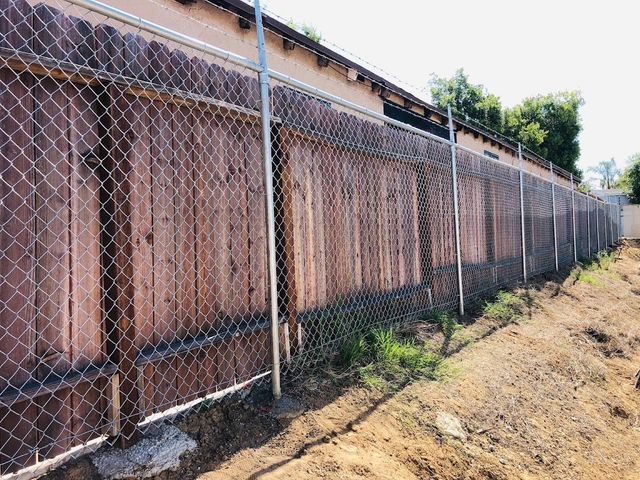All Categories
Featured

When setting up a fence, selecting the right material is essential to stabilizing functionality, visual appeals, and budget plan. Timber, plastic, and light weight aluminum are amongst one of the most typically picked fence products, each with its drawbacks and staminas. This guide checks out the benefits and drawbacks of these choices to help you make an educated decision.

Wood Fence. Pros:. Natural Elegance: Timber's ageless beauty can boost any building with its classic and cozy look. Adjustable: You can paint, stain, or carve timber to fit your style choices. Economical: Timber fencing is originally a lot more affordable contrasted to some various other products. Eco-friendly: As a renewable resource, wood is biodegradable and frequently considered environmentally friendly. Cons:. Maintenance-Intensive: Normal sealing, paint, or discoloration is required to stop damages from weather and bugs. Prone to Decay: Without correct care, wood can rot, warp, or fracture over time. Much shorter Life expectancy: Generally, timber fences last 10-15 years, depending on the kind of timber and upkeep. Wood is an excellent choice for those who value aesthetics and are willing to spend in regular upkeep to maintain its look and longevity.
Plastic Fence. Pros:. Low Maintenance: Vinyl needs marginal care-- simply periodic cleansing with soap and water. Climate Resistant: It does not warp, rot, or surrender to insect damage, making it extremely durable in numerous climates. Durability: Vinyl fencings can last 20-30 years with little to no repair work. Design Variety: Available in a wide variety of textures, colors, and designs, consisting of wood-like looks. Disadvantages:. Higher Preliminary Cost: Plastic fencings are extra expensive ahead of time contrasted to timber. Susceptability to Cold: In extremely winter, vinyl can become prone and fragile to cracking. Minimal Repair Work Options: Matching replacement panels can be testing if damage happens. Vinyl fencing is perfect for homeowners trying to find a durable, low-maintenance remedy that uses modern versatility.

Aluminum Fencing. Pros:. Rust-Proof: Aluminum resists deterioration, making it a superb choice for humid or wet settings. Durable: Regardless of being lightweight, aluminum is strong and can hold up against harsh climate condition. Reduced Upkeep: It requires minimal upkeep, normally just periodic cleansing. Long Lifespan: Aluminum fencings can last years without considerable deterioration. Classy Design: Frequently used for decorative objectives, light weight aluminum fence includes a sleek, innovative look to properties. Cons:. High Preliminary Investment: Aluminum fencings are amongst the costlier alternatives on the market. Much less Personal privacy: The open designs usual with aluminum fence don't supply much privacy. At risk to Damage: While long lasting, light weight aluminum can damage if struck with sufficient force. Light weight aluminum is an excellent selection for home owners prioritizing visual appeals and durability without needing much maintenance.
Making Your Choice. When deciding in between aluminum, vinyl, or wood fence, consider your top priorities:
Timber fits those that appreciate a natural appearance and don't mind placing in upkeep initiative. Plastic is the most effective option for those looking for a low-maintenance, weather-resistant option. Aluminum uses streamlined style and long-lasting toughness however might lack personal privacy. By meticulously analyzing these materials' attributes, you can choose a fencing that complements your building while fulfilling your useful and visual requirements.
Latest Posts
Elevate Your Brand with Expert Video Production
Published May 16, 25
1 min read
Meet Premier Retina Physicians Near Me at the Eye Center South
Published May 16, 25
1 min read
Discover WyHy Federal Credit Union Saves You Money on Financing and Accounts
Published May 16, 25
1 min read
More
Latest Posts
Elevate Your Brand with Expert Video Production
Published May 16, 25
1 min read
Meet Premier Retina Physicians Near Me at the Eye Center South
Published May 16, 25
1 min read
Discover WyHy Federal Credit Union Saves You Money on Financing and Accounts
Published May 16, 25
1 min read